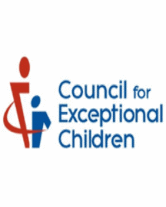Collecting Educationally Useful Information for Students with ADD
Imagine that you are faced with collecting information about a child who is suspected of having an attention deficit disorder. What information will be most useful to collect? The key is to generate sound information that can be used to design classroom interventions and support any medical treatment program that the child might be receiving.
For example, in Sturgeon Bay, Wisconsin if classroom observation reveals a possible attention deficit problem in a child, teachers begin assessment proceedings by following a process designed to gain information from all who are involved with the child for example, teachers, parents, and the school psychologist. This process also serves the purpose of increasing everyone's understanding of the student. The process includes the following steps:
- Review student files. Look to see whether others have noticed similar problems. Check out any previous school testing, including screening for vision and hearing problems.
- Share your observations with parents or family. Discuss your observations with the student's primary caretaker to find out whether these behaviors occur across settings.
- Follow through on suspected health problems. If your research leads you to suspect that a health problem might exist, talk to the family about getting the child a physical checkup. Or, you might need to consult with school health professionals if it becomes necessary to refer the student to the public health department for screening.
- Consult with other school personnel. It is always a good idea to pool your information with that of other professionals. Think about tapping the expertise of the guidance counselor, school psychologist, or special education teacher. If your school has a teacher support team,seek out its advice, as well. Invite specialists to observe the student in your classroom.
- Plan for interventions. No matter what the outcome of your findings, don't wait to start devising a classroom plan to accommodate the student's learning needs. Include the student's parents, your principal, and other school personnel as appropriate in helping you design success strategies. Keep detailed accounts of your efforts; they may prove useful in helping you sort out what works for the student and in making recommendations to other professionals.
From this process, teachers learn a great deal about the student, as well as how to enhance classroom practices. Using such a system can move you and your colleagues forward in suggesting well-formulated educational plans.









